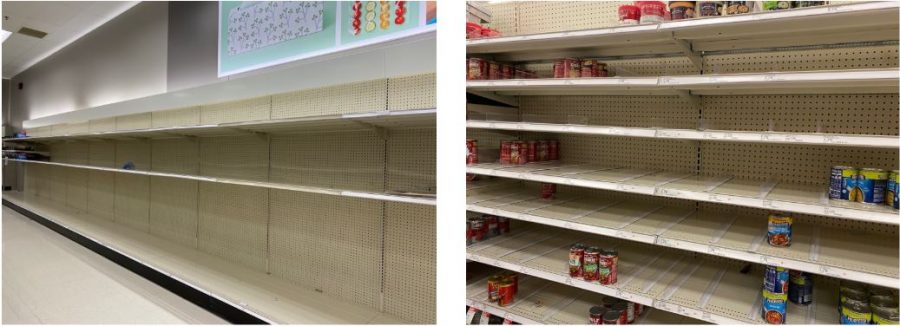Quarantine Impacts Local Stores
The left photo is of the toilet paper shelves on March 15 in the Target located in Shorewood. The right photo is of the canned goods section of the same store, both left nearly empty after Coronavirus began to spread throughout America.
March 17, 2020
As Coronavirus cases increase daily in America, grocery stores are being affected. They remain some of the only public places open throughout the outbreak, while other locations such as restaurants are closed for the remainder of the month. Local stores are facing a surplus of customers and empty shelves as the pandemic continues.
When walking into their local grocery store, many shoppers find the shelves that recently held commodities such as toilet paper or milk completely bare. Despite no increase in necessity or issues in manufacturing, this apparent shortage is making headlines. “Seeing the shelves empty is really eerie and creates a lot more stress around the subject,” stated Emma Schumacher, a Joliet West sophomore, on going to her local Target.
Psychologists have deduced this phenomenon to panic buying. The need to feel in control in an uncertain time is a substantial factor in the increased purchasing of necessities. However, in response to these shortages, stores have begun to limit the amounts of certain products that people can buy. Signs on various Target shelves make shoppers aware of restrictions, such as limiting hand sanitizer to one per guest. Many other stores, such as Costco and Jewel-Osco, have implemented similar policies, while companies like Kroger are hiring new employees to keep up with the influx of shoppers.


